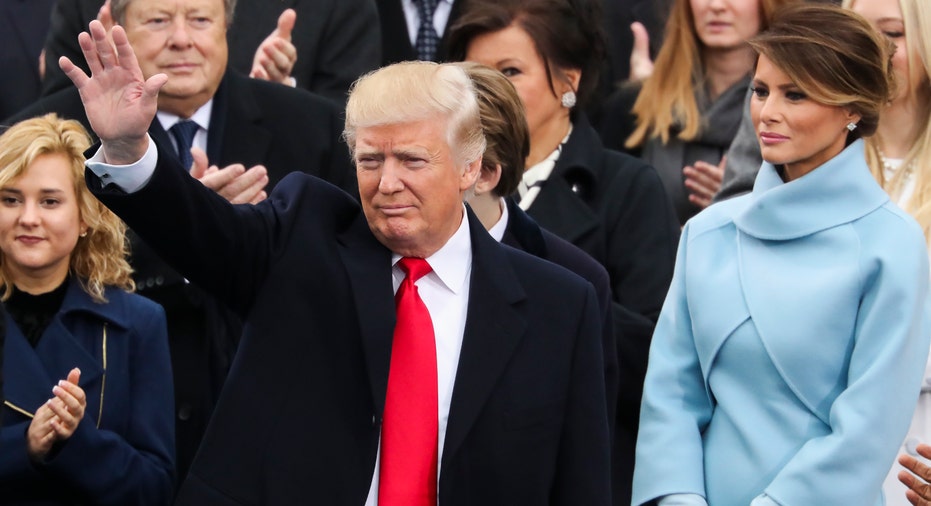EY Expects More M&A Under the Trump Administration

2017 arrived with a heightened level of optimism for M&A activity in the US, as well as a dose of uncertainty. In the year ahead, we expect US deal activity to rise due to factors including favorable policies under the Trump administration and Republican-controlled Congress, ongoing strong conditions in the credit markets, record levels of dry powder on the private equity front and continued pressure for growth amid the threat of disruption.
Questions remain surrounding how the new administration’s stance will play out for global trade, potentially disrupting established supply chains and interdependencies.
Despite uncertainty, US companies will continue to pursue M&A transactions to accelerate growth and remain relevant in the face of changing consumer preferences, shifting industries and global competition. These fundamental forces will certainly endure in a shifting political landscape.
As we continue to navigate changing political and economic dynamics, here are three key triggers to watch through the lens of M&A:
Corporate Tax Reform Bolstering Balance Sheets
The likelihood of pro-growth corporate tax changes will propel executive confidence and potentially deal appetite. New tax proposals, which are a noted priority of the new administration, would tax US companies on accumulated foreign earnings, which could encourage them to bring back at least some of the more than $2 trillion currently held abroad. In addition to organic investments and payouts to shareholders, a portion of this capital may go toward M&A. Some might look to 2005 when deal volume involving US acquirers increased 34%, according to Dealogic, following a similar tax holiday in 2004. Others would argue there wasn’t a direct connection to M&A because a lot of that money went back to shareholders. A coincidence of timing or a direct result of tax policy? Chances are we will find out closer to 2018 when reduced corporate tax rates would begin to hit company balance sheets.
New Global Trade Policy Could Redefine Borders
The protectionist rhetoric we heard during the campaign could mean tougher rules on cross-border deals, especially for foreign-led takeovers of US companies. Significant changes to trade agreements could also have a meaningful impact on supply chains as US companies operate in an integrated global environment. This is particularly relevant for the technology sector and concerns have already been reflected in the share prices of US-based, global tech companies. At the same time, any barriers that disrupt supply chains may encourage US companies to replicate domestically through vertical integration. It has yet to be seen how trade policy will play out, and many Republicans in Congress are likely to take a pro-trade stance. It is important to keep in mind that even as cross-border deals become more complex, they are not going away. Companies will, more now than ever, need to transact on a global scale to remain competitive and relevant.
Regulation Rejiggered
Republican administration could result in less regulatory intervention and a greater ease of completing transactions. In 2016, we saw how antitrust challenges led to the failure of several high-profile deals. Conversely, Republican administrations have traditionally been more supportive of economically driven business mergers; former President George W. Bush’s administration challenged an average 14 deals per year during his tenure, compared to the Clinton administration, which challenged an average 32 deals per year. It is unclear if the past will prove prologue. However, Trump’s focus on maintaining and increasing domestic jobs and his stated stance on some recently announced deals could perhaps create a new barometer for the success or failure of a megadeal.
In the coming year US executives must keep an eye on these trends, but they cannot take their foot off the gas as greater fundamental forces create an environment that is ripe for strategic growth through M&A transactions.
Bill Casey is EY Americas Vice Chair of Transaction Advisory Services (TAS). He brings more than 30 years of experience advising corporate and private equity clients across the Americas on their capital strategies and on managing complex transactions to drive growth. Bill spent more than a decade on engagements in Latin America, including serving as a partner in the São Paulo office of the EY member firm in Brazil. He has led some of the US firm’s largest client engagements, including numerous integrated cross-border transactions. Bill’s sector experience spans the beverage, automotive, telecommunications, FinTech and professional services industries, among others.



















